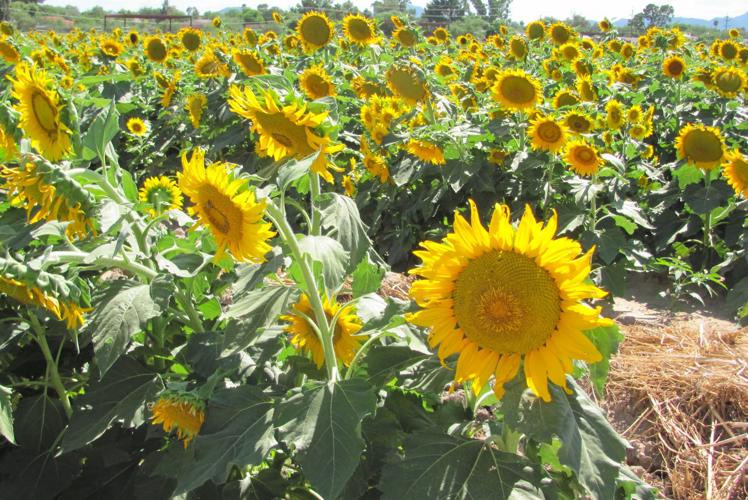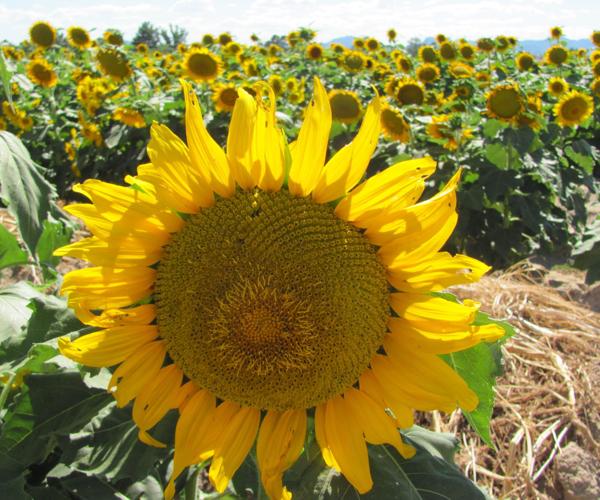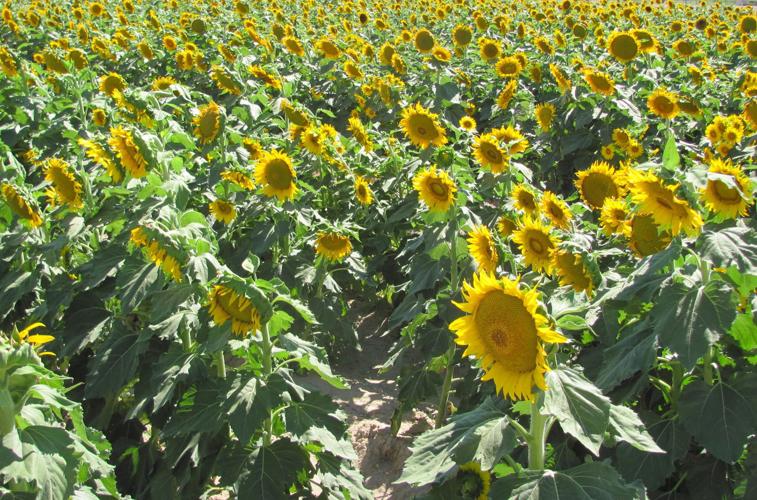Tucson can’t quite compete with Tuscany in Italy for grand displays of sunflowers.
But visit the University of Arizona Campus Agricultural Center this month and you’ll see fields flourishing with hundreds of sunflowers in brilliant bloom.
They are beautiful, yes, but they were planted mainly for use by researchers with the Carl Hayden Bee Research Center in Tucson. The researchers are studying the effects of various soil nutrients on the nutritional quality of pollen in the flowers — an important element in optimizing the health of honey bee colonies.
“They were planted on about an acre in early- to mid-June,” said Steve Husman, resident director of the Agricultural Center. “They are a dwarf variety of sunflowers that grow about 3 to 4 feet high.”
Gloria DeGrandi-Hoffman, research leader at the Bee Research Center, described the reason for conducting the study and the research methods.
“There has been a lot of encouragement from various groups to plant more bee-friendly plants so we can maintain our pollinator populations and make pollen and nectar available for bees so they have the nutrients to stay healthy,” DeGrandi-Hoffman said.
“We were wondering if we could improve the nutritional quality of pollen based on how we grow the plants, including what we do with soil,” she said.
She noted that one feature making sunflowers useful is that “they have these big flower heads, so bees can gather pollen easily from sunflowers.”
The research involves putting fertilizer on some parts of the planting area and not on others.
“We’re putting different types of nutrients in the fertilizer,” DeGrandi-Hoffman said. “Then we’ll see if we can see a significant difference in the nutritional quality of the pollen.”
She said researchers will analyze the pollen data after the flowers fade in the coming weeks and publish their findings later.
DeGrandi-Hoffman credited graduate student Steven Timlin of Texas Tech University for valuable help with work at the site.
There are no plans for the sunflowers following the research.
“The birds will end up getting them all,” DeGrandi-Hoffman said.
The Campus Agricultural Center is at 4101 N. Campbell Ave. The center’s office is open 7:30 a.m. to 3:30 p.m. daily.






